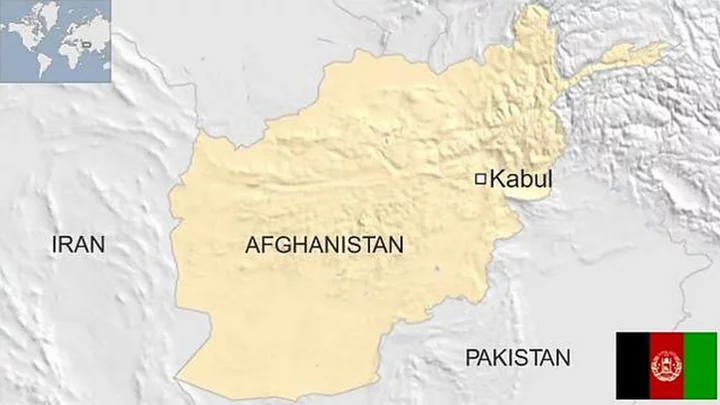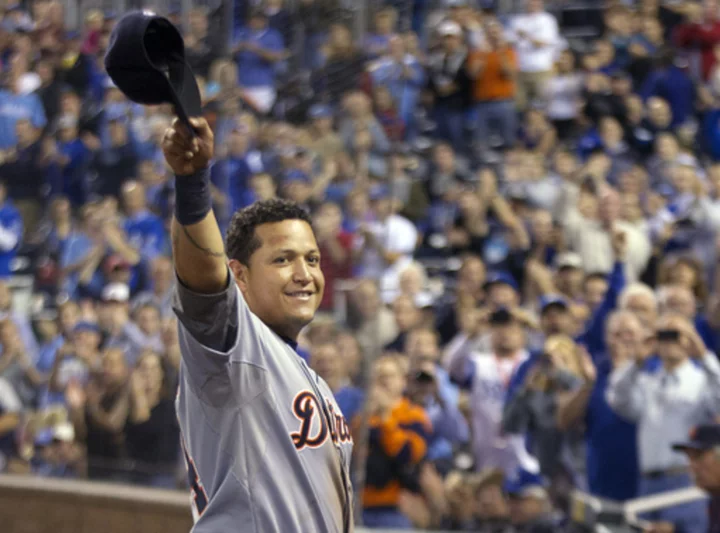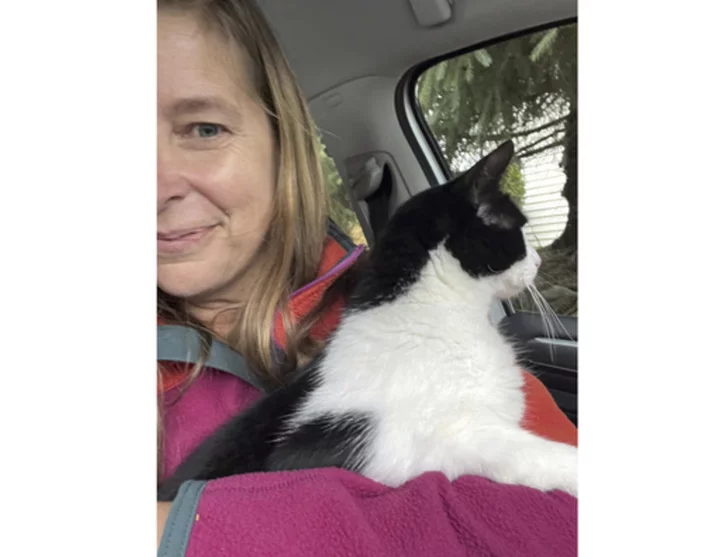You wouldn’t blink if someone told you to look forward or backward, or to move onward, or to stop making it awkward.
But at the risk of being too forward, you’re probably rarely pointed in the direction netherward or pancakeward. The rich history of the English language is full of similar directional words that are cool but uncommon, like the ones below.
1. Moonward
Buzz Aldrin knows something about traveling moonwards, but not many other folks do. Moonward (and moonwards) started popping up in the 19th century, and a 1995 issue of Popular Science makes use of this lunar word: “None saw the live telecast from the cabin of the moonward-bound Apollo 13—because the networks didn’t carry it.”
2. and 3. Deathward and Graveward
This term dates back to the late 1300s, but it’s as timeless and inevitable as any. Like it or not, we’re all pointed deathward. Or, if you prefer, you can use graveward, which began popping up in the mid-1800s.
4. Clodward
This word would appear to mean “in the direction of a clod,” which is about as bad as going oafward or buffoonward. But in this case, clod means “earthy,” and therefore, clodward means “toward the earth.” An 1883 lecture by William Arthur describes “The most clodward thinker that ever bent his looks down.” That’s not necessarily an insult—it suggests earthiness, which can’t be all bad.
5. Netherward
Since the musty days of Old English, netherward has been a term for moving downward or to the bottom. But it sounds so much cooler.
6. and 7. Heavenward and Firmamentwards
In the opposite direction of netherward is heavenward, a term that, since the 1300s, has pointed specifically toward the pearly gates or simply up. A 2006 example from the Chicago Tribune about a rocket-maker shows the term is likely still in use: “He awaits the moment when Carpe Diem, his homemade, 18-foot rocket hurls itself heavenward.” A lengthier synonym is firmamentwards, which dates back to the 1880s.
8. and 9. Godward and Devilward
Also recorded since the 1300s is Godward. The opposite direction of heavenward and Godward would be devilward, which has been around since at least the 1500s.
10. Grousewards
Before you start grousing, let us explain that a grouse is a reddish bird, so this term would be a cousin of chickenwards or ostrichwards (if those words existed)—grousewards means “in the direction of a grouse.” An 1853 letter by Arthur Hugh Clough describes a lonely situation: “The Commons are off grousewards, and scarcely any one remains to ask one to dinner or anything else.”
11. Pocketwards
There’s a pro wrestler named Orange Cassidy who has a slacker gimmick. Cassidy makes a production of putting his hands in the pockets of his denim joggers, and once he does, look out: It’s like Popeye post-spinach. So opponents try to prevent Cassidy’s hands from moving pocketwards. The Oxford English Dictionary (OED) notes that its “only evidence” of the word is a use by H.G. Wells in 1909: “He made a motion pocketwards, that gave us an invincible persuasion that he had a sample upon him.”
12. Motherwards
To an infant, eastwards, westwards, northwards, and southwards pale in importance to motherwards. But folks of all ages tend to look in that direction, as seen in an 1893 use recorded by the OED: “It does not forbid the dying son to cast his eyes motherwards.”
13. Romancewards
Not to be confused with romance words like sweetie and bae, this direction can be precarious, as alluded to in a 1920 use by Rose Macaulay: “He was also leaning romancewards and departing from the realm of pure truth.”
14. Palacewards
This term has been seen in royal contexts since the 1400s, but it never sounded more poetic than in this 1845 use from Ladies’ National Magazine: “The trees look amazed in their robes of crimson and umbered brown, like a bevy of dowagers in court-dresses, suddenly checked on their route palace-ward.”
15. Selfwards
This naval-gazy word has been around since the late 1800s. An example from The Bookman in 1931 rings with truth: “There are long hours when a depression moving selfwards leaves the outlook cloudy and unsettled.”
16. Couchward
Speaking of depression, “Care for your couchward path,” as a poet self-dubbed Nightlark wrote in 1852.
17. and 18. Nasalward and Nosewards
Dating to the early 1900s, the nosey term nasalward comes from ophthalmology—it means “located towards the nose.” Speaking of the schnoz: As a kid, your mother might have told you, “Do not move that finger nosewards,” another term meaning “towards the nose” that originated in the 1860s.
19. Thitherward
Since the days of Old English, folks have gone thitherward, and also thitherwards, either of which means roughly “thataway.”
20. Tavernwards
This term is self-explanatory, and if not, check out this use from the Daily News in 1892: “Thirty young fellows … were promptly on the ‘double’ tavernwards.”
21. Pancakewards
This term, according to the OED, means “towards or for a pancake” and was “[a]pparently an isolated use.” Believable. It’s also labeled “Obsolete.” Pshaw. Since the dawn of batter and until the end of time, folks have been or will be drawn pancakeward.
This article was originally published on www.mentalfloss.com as 21 Old and Odd Directional Words.









